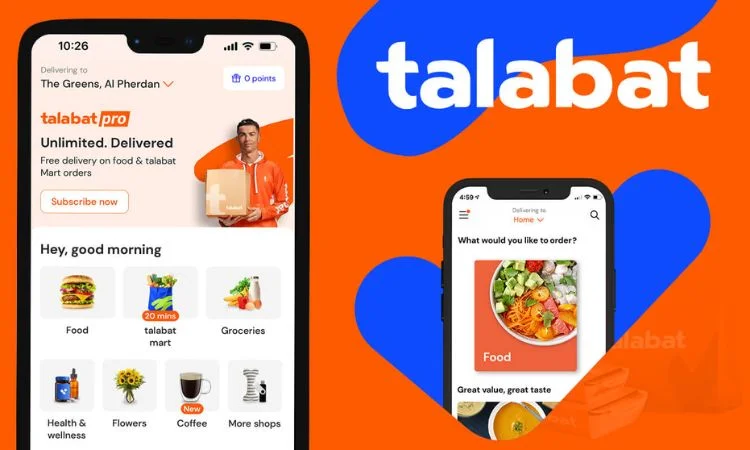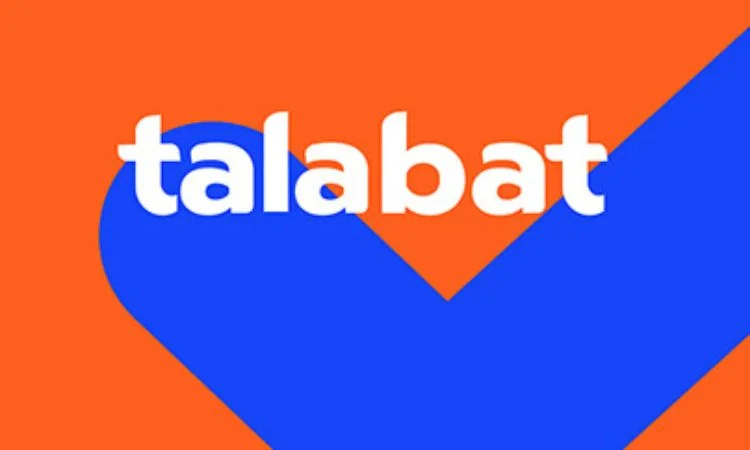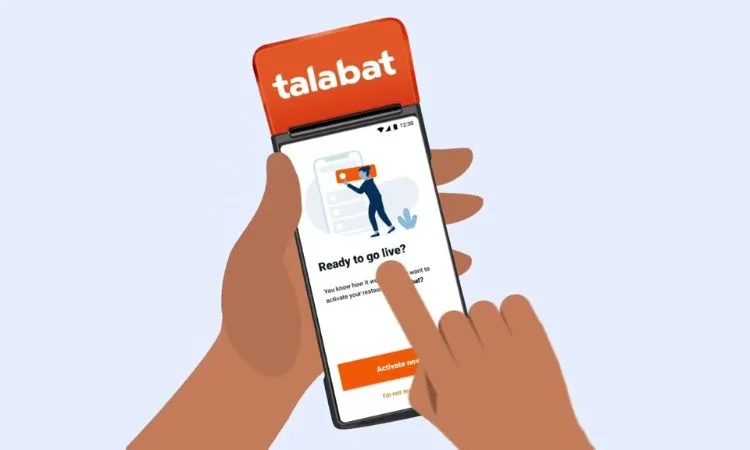Beyond the colourful streets of the Middle East, where the aroma of spices blends with the cacophonous cadence of commerce, a momentous shift is occurring in the field of food consumption. Talabat, a cutting-edge platform that is leading the way in changing the dynamics of food distribution throughout the region, is the perfect example of this evolution.

Source:Neetable
Indeed, the progress in the Online Food Delivery Market area is recording astonishing growth all over the world, with the Middle East region being amongst the most affected. A fast growing customer demand for food delivery apps which fuels more penetration of these apps in the UAE, Saudi Arabia and Kuwait is notable.
The flow of the trade can be traced back mainly to the rising popularity of e-commerce both throughout the MENA region and its most obvious benefit: the availability of online shopping. Hence, the platforms like Talabat tend to register considerable amounts of revenue generation, mainly because of the increased market size of a developing economy and one following amongst the wealthiest nations at the global level.
Company Highlights
| Attribute | Details |
| Founded | 2004 |
| Area served | Kuwait, Saudi Arabia, Bahrain, United Arab Emirates, Oman, Qatar, Jordan, Egypt, Iraq |
| Owner | Delivery Hero AG |
| Founder(s) | Abdulaziz Al Loughani |
| CEO | Tomaso Rodriguez |
| Industry | Internet |
| Services | Online food ordering, Food delivery |
| Employees | >16,000 |
Talabat: About

source: Behance
The company known as Talabat in English, and as طلبات (Ṭalabāt) in Arabic, is a food ordering service that particularly operates from Khawti (Kuwait) since 2004. At this moment, April 2021, Talabat the company has branched out in a number of countries including Kuwait, Saudi Arabia, Bahrain, the United Arab Emirates, Oman, Qatar, Jordan, Egypt, and Iraq. Through which Delivery Hero owned in 2016, has become the leading online meal-targeted portal in the Middle East area.
Talabat: How the Obstacles to Make the Food Ordering Service Conquest Best in the Middle East.
Delivery Hero’s offshoot Talabat remains the leading online food ordering service provider in the Middle East despite a formidable competition. On the other hand, its rocket to this niche was not without a lot of bumps and barriers.
In the backdrop of 2005 where pessimism was blatant, an entrepreneur aged 33 years sashayed across a kitchen and came out with a fantastic idea for filling the gap that was there in food deliveries in Kuwait. In the light of growing disbelief, he remained focused and garnered a reputation for perseverance. This qualifies him as the role model for subsequent innovative folks.
During this nascent stage, a mere 23% of the population embraced internet usage, rendering the conception of a digital venture like Talabat a proposition dismissed by many as futile. Moreover, logistical challenges compounded their endeavour, as the absence of tools like Google Maps made navigating delivery routes a daunting task, compounded by the sluggishness of internet connectivity at the time.
Entrepreneurs from the region voice their appreciation towards the founder Talabat today, admitting the store-house of his resilience in expanding Talabat and designating the whole segment as the pillar of progression. The deal of Talabat purchased the amount of African internet companies is the highest amount invested at that moment.
Thus, it declares the potential of the innovative economy of this region. This significant moment has not not only challenged many aspiring entrepreneurs to get on board, but has also implied the fact that the region’s entrepreneurship has never been more promising.
How Does Talabat Work: Talabat’s Business Model Explained

Source: Youtube
For Talabat not to be a business with an average lifespan, its management would have been obliged to adhere to a conventional business model. In the tipping market of food delivery options, the majority are just failing to be profitable , only few make it successful in the end.
To illustrate these challenges, Uber Eats had to discontinue operations in UAE and Egypt because of competition and problems with making its headway. Nonetheless Talabat, the leader in the field, proves that it has the ability to withstand. This app with its reliable and quality customer service has won many praises from the Middle East rather than many. On top of enabling restaurant deliveries, Talabat has diversified its existing offerings to include purchases from gift shops, grocery stores and florists, making it even more attractive and useful to resort guests as well as residents of the area.
Talabat is an on-demand delivery company which covers a hyperlocal area and mostly acts as a food delivery facilitator. The platform is embedded with the latest technology to tap into the culinary fanaticism of customers and restaurant owners alike.
Adopting a partnership strategy, Talabat is not only concerned with serving its customers but, in addition, the restaurant chains with Talabat have their interests in mind as well. The key thing for the platform to uppercase the value it delivers is making sure all involved parties succeed.
This is also supported by the Talabat business philosophy which includes exclusivity. Through commitments like discounted implementation fees for restaurants which choose to be partners exclusively, the company does away with the intricacies of business management that comes from dealing with several delivery providers at a time. Such tactic is a desirable plot which restaurants are taking to unify their delivery businesses on Talabat’s platform.
The work procedure of Talabat adopts customs of functioning of every on-demand hyperlocal service. When working with Talabat, a restaurant is brought to a platform, hence gets a chance to reach out to the customers. Potential platform users can effortlessly register and follow through next by ordering food or numerous other things. Then, when an order is received, the restaurant starts cooking and quickly sends a delivery person to accomplish a delivery at a desired location.
During that operational period, clients get regular notification about their orders which helps them to get on knowing the status of their orders. Furthermore customers themselves can view their order status instantly within the Talabat mobile application.
Talabat stands out by not only putting the customer first but also providing a powerful suite of CX features. These include the process of flawless app onboarding, user-friendly ordering system, many payment choices, a GPS-based order tracking, a comprehensive order history page, an in-app chat option for direct customer communication, powerful search functionalities, and many more features that will make the service more convenient for users.
Talabat :Revenue Model
Talabat operates on a robust revenue model consisting of three key avenues for generating income:
Commissions on Orders:
Talabat works through a percentage-based commission structure with its restaurant partners – it charges between 15% and 20% of the total order to the selected restaurant. Apart from that, restaurants that actively cooperate with Talabat are able to claim a 5%-10% discount as long as their deal resembles Talabat’s regulations. This plan on one hand works wonders in terms of partnering eating places of high class through collaboration, but also multiplies in the sense that it controls competition.
Delivery Charges:
Talabat thus assists the restaurant to entertain orders of any size, including minimal, without a minimum order requirement. The delivery fee is in contrast with the size of the order whereby the customers and the restaurants get motivated to order for the bigger orders while at the same time they have the flexibility to choose.
Advertisements:
Talabat employs a comprehensive advertising strategy to bolster sales, leveraging two primary monetization methods:Talabat employs a comprehensive advertising strategy to bolster sales, leveraging two primary monetization methods:
Banner Ads:
Through a strategic distribution of banner advertising on buildings, Talabat helps to promote restaurants in all of Desa and enhance their visibility in the community so as to improve word of mouth and brand awareness.
Talabat Features
Features of the Talabat Application Segmented into Three Categories:
Customer Application/Panel:
Authentication: Talabat gives customers the ease of accessing the platform and signing up using different approaches such as login using social media i.e. Facebook, Instagram, Twitter email, phone or OTP.
Location Selection: Today’s customers do have an enormous amount of freedom – they can make their selection of any wanted place to search available restaurants within this area.
Homepage: The main page of the application contains an intuitive section, allowing you to check which establishments are available without any difficulty.
Cart Selection: This component allows the consumers to make a wish list and combine all their varsities to a single cart that ensures simple ordering.
Menu Browsing: When picking a venue for an order to be processed, your patrons simply browse restaurant menus, place the items they want and finally confirm the order.
Online Payment: With talabat the customers can make payment through digital mode using payment methods like UPI, credit/ debit cards etc.
Review Functionality: Customers have the capability to provide feedback and write reviews for restaurants, contributing to a transparent and informative platform.
Order History: Talabat’s client application provides users with access to their order history, facilitating convenient reordering of favorite items.
Product Search: Simplifying the search process, Talabat’s app efficiently filters merchants based on the desired products, ensuring customers find precisely what they are looking for.
Delivery Person Tracking: Through the client application, customers can easily track the delivery agent assigned to their order, enhancing transparency and convenience.
Contact Information: The application features a dedicated section allowing users to communicate with both the restaurant and delivery personnel, facilitating inquiries and updates regarding their deliveries.
Online Support: Customers benefit from access to online support from the application’s staff, ensuring prompt assistance whenever needed.
Features of Talabat’s Delivery Agent App/Panel:

Source:Enterprise Channels MEA
Secure Login Options: Their delivery agents access the platform through secure login methods, including social channels, email, and phone numbers, facilitated by OTP verification.
Efficient Customer Communication: Seamless communication between the delivery agent and customers is paramount. Talabat equips its delivery agents with a two-way communication feature, enabling them to efficiently engage with customers during the delivery process.
Personal Account Wallet: To streamline financial transactions, our platform offers a personal account wallet feature. Delivery agents can conveniently manage their daily revenue, ensuring smooth transfers to their designated accounts.
Flexible Task Management: Empowering our delivery agents, the platform allows them to exercise discretion in accepting or rejecting delivery tasks based on their preferences and availability.
GPS Tracking: Enhanced logistics management is achieved through GPS tracking integrated within the delivery person’s application. This feature facilitates real-time tracking of the delivery agent’s location, benefiting both technical support teams and customers alike.
24/7 Online Support: In instances of operational challenges, delivery personnel can rely on our comprehensive online support system. Accessible round-the-clock, our support bots efficiently address queries and provide assistance whenever needed, ensuring a seamless delivery experience.
Talabat: Top Competitors
| Position | Company |
| 1 | Otlob |
| 2 | EatEasy |
| 3 | elmenus |
Talabat: Challenges and Future Outlook
Looking at Talabat Scaling up their Operations, the Following Challenges can be Enumerated
Like many other fast-grower delivery platforms, Talabat has barriers which are in a way similar hindrances’ obstacles. Here are some key challenges:Here are some key challenges:
Regulatory hurdles and cultural differences across markets:
The food delivery model backed by diverse countries have points of variance around drivers’ licensing, regulation, and data privacy. Hence, Talabat is obliged to customize its services according to each market that, as a result, means a lot of adjustments and time spent to adopt the operation.
Not only does cultural variety in appetite, transaction terms, and even in driving environs can be the reason for differences in the way Talabat is managed in each region.
Logistics and infrastructure:
Aim for expansion to different places. This means we have to work on the networks with restaurants, delivery drivers and dark kitchens(places for orders from the customers only). It happens to be a very crucial factor, especially when you try to build roads in underdeveloped regions.
The efficiency of delivery times by reaching wide geographies may have to be improved by streamlining logistics with new technology like autonomous vehicles (at some point).
Competition:
The online food delivery market occupies the niche, which becomes less and less. It is imperative for the company to create a strong position for its brand that differentiates it from others by providing novel features, encouraging competitive pricing, and ensuring customers are happy.
Talabat: Plans for the Short-Term and Strategies for Growth
Here are some potential strategies Talabat can use to address these challenges and continue to grow:
Localization: Adapting the app and services to meet the unique requirements and expectations of each national market. Disclaimer: The essay sample on Global
Expansion: Adapting for Growth. offered above should be used as a reference point in researching but it is strongly advised to avoid plagiarism by modifying and customizing it. It can entail among others local food options, collaboration with known restaurants, and the provision of support agents who speak different languages.
Partnerships: Partnering with local entities would be the best means of apprehension for Talabat in respect of regulations, expansion of system interconnection and insights among each market.
Technological innovation: Providing financial support for implementing AI-powered logistics optimization along with automation systems enhances efficiency, reduces costs, and increases the overall competitiveness of the enterprise.
Focus on customer experience: Exceptional customer support, introductory marketing strategies, and ensuring seamless usage are the ground bases for strong customer retention.
Talabat played a key role in modernizing the Middle Eastern food delivery scene by:
Empowering customers: Convenience, easy access, the ability to make store-keeping choices, and getting food items at low prices.
Facilitating growth: Building a tool that provides restaurants either with the means to expand their customer base or the opportunity to evolve their operations.
Boosting competition: Bringing down to more competitive and diverse food delivery options at the end of the day.
Conclusion
In conclusion, Talabat stands as a pioneering force in revolutionising the food distribution landscape across the Middle East. Its journey from inception to becoming a leading online meal-targeted portal reflects not just entrepreneurial resilience but also the burgeoning potential of the region’s innovative economy.
Talabat’s business model, deeply rooted in partnerships and customer-centricity, has enabled it to not only survive but thrive in a fiercely competitive market. Through strategic initiatives such as diversifying services beyond food delivery and fostering exclusive partnerships with restaurants, Talabat has cemented its position as a market leader.















